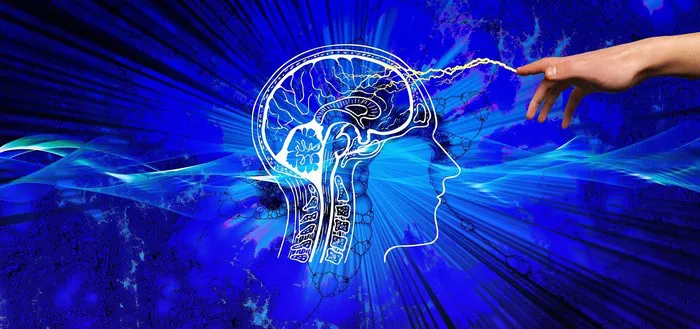1. The Gut-Brain Connection:
The intricate relationship between the gut and the brain has been a topic of growing interest in both medical and scientific communities. This connection, known as the gut-brain axis, facilitates bidirectional communication between the central nervous system and the enteric nervous system, which governs the function of the gastrointestinal tract. This communication occurs through neural, hormonal, and immunological pathways.
Mounting evidence suggests that the health of the gut plays a significant role in influencing mental well-being, and vice versa. Studies have shown that individuals with gastrointestinal disorders often experience symptoms of anxiety and depression, while those with mental health conditions frequently report gastrointestinal symptoms.
A crucial player in this connection is the gut microbiome, the diverse community of microorganisms residing in the digestive tract. The gut microbiome plays a vital role in regulating mood, behavior, and cognition through its interaction with the gut-brain axis. Disruptions in the composition and function of the microbiome have been linked to various mental health disorders, including depression.
2. Constipation and Depression: Exploring the Link:
Constipation and depression are both prevalent conditions that can significantly impact an individual’s quality of life. While constipation can be a symptom of depression, it’s essential to recognize that the relationship between the two is complex, and constipation can have various other causes.
Constipation may result from factors such as dietary choices, insufficient fluid intake, lack of physical activity, certain medications, and underlying medical conditions like irritable bowel syndrome (IBS) or thyroid disorders. However, in cases where constipation is linked to depression, several mechanisms may contribute to its development.
Depression can affect gastrointestinal motility, leading to slower movement of food through the digestive tract and subsequently causing constipation. Hormonal changes associated with depression, such as elevated levels of cortisol and alterations in serotonin and dopamine levels, can also impact gut function and contribute to constipation. Additionally, decreased physical activity, common in individuals experiencing depression, can further exacerbate constipation.
3. Seeking Help and Treatment Options:
It is crucial for individuals experiencing symptoms of constipation or depression to seek professional medical advice for proper evaluation and management. Diagnosis of depression typically involves a thorough assessment of symptoms, medical history, and possibly laboratory tests to rule out other underlying conditions.
Treatment options for depression may include psychotherapy, medication (such as antidepressants), and lifestyle modifications. Psychotherapy, including cognitive-behavioral therapy (CBT) and interpersonal therapy, can help individuals address negative thought patterns and develop coping strategies. Antidepressant medications, such as selective serotonin reuptake inhibitors (SSRIs) or serotonin-norepinephrine reuptake inhibitors (SNRIs), may be prescribed to help regulate neurotransmitter levels in the brain.
For constipation management, dietary modifications such as increasing fiber intake, staying hydrated, and incorporating physical activity into daily routines can be beneficial. In some cases, laxatives or stool softeners may be recommended for short-term relief, but their long-term use should be monitored by a healthcare professional.
4. Additional Considerations:
Stress and anxiety are significant contributors to both gut health and mental health. Chronic stress can disrupt the balance of the gut microbiome, leading to gastrointestinal symptoms and exacerbating mental health conditions like depression and anxiety. Practicing stress-reduction techniques such as mindfulness meditation, deep breathing exercises, and yoga can help mitigate these effects.
Healthy lifestyle habits play a crucial role in managing both constipation and depression. Regular exercise not only promotes gastrointestinal motility but also enhances mood and reduces symptoms of depression. A balanced diet rich in fruits, vegetables, whole grains, and probiotic foods supports gut health and overall well-being. Additionally, maintaining good sleep hygiene is essential, as sleep disturbances are common in both constipation and depression.
For further information and support, individuals can turn to mental health organizations such as the National Alliance on Mental Illness (NAMI) or the Anxiety and Depression Association of America (ADAA). Websites like the International Foundation for Gastrointestinal Disorders (IFFGD) provide resources and information on digestive health. Seeking guidance from healthcare professionals, including gastroenterologists, psychiatrists, and therapists, can offer personalized treatment plans tailored to individual needs.
Conclusion
In conclusion, while constipation can be a symptom of depression, it’s essential to consider the multifactorial nature of both conditions and seek comprehensive evaluation and management. By addressing gut health and mental well-being holistically, individuals can improve their overall quality of life and well-being.
FAQs
Is constipation a sign of mental illness?
Constipation can be linked to mental health issues like stress, anxiety, or depression due to the gut-brain connection. While it’s not a definitive sign of mental illness, addressing mental well-being can often alleviate constipation symptoms.
Why am I always constipated?
Several factors contribute to chronic constipation, including diet low in fiber, inadequate hydration, lack of physical activity, and certain medications. Additionally, underlying medical conditions like irritable bowel syndrome (IBS) or thyroid disorders can also play a role. Consulting a healthcare provider can help identify the root cause.
What simple trick empties your bowels?
Increasing fiber intake through fruits, vegetables, and whole grains, staying hydrated, and engaging in regular physical activity can aid in bowel movement regularity. Additionally, establishing a consistent bathroom routine and allowing ample time for bowel movements can help stimulate natural bowel movements.
Related topics:
- Disability Benefits for BPD: A Comprehensive Guide
- Navigating SSI with BPD: A Comprehensive Guide
- The Border between BPD & Schizophrenia


